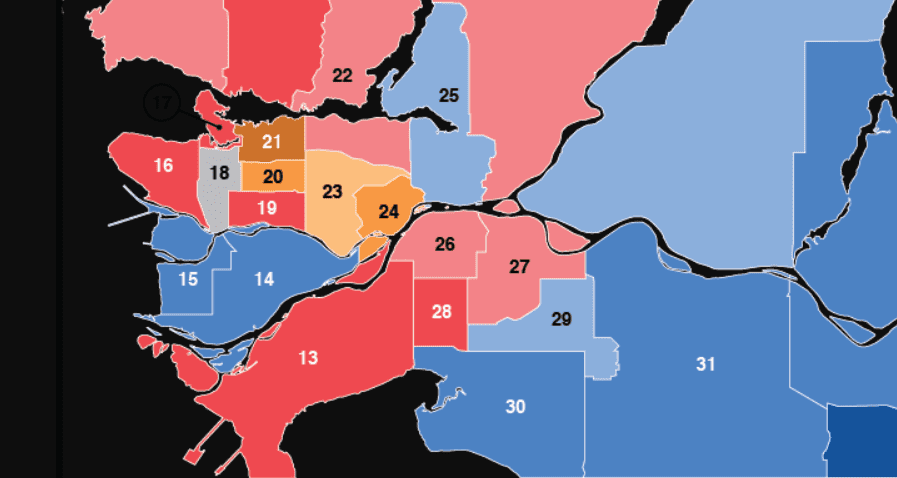An expected blue wave washed across many Vancouver suburbs Monday, but somehow Delta, once a right-of-centre stronghold, didn’t get wet.
One of the many storylines in this federal election was how many B.C. ridings the Conservatives would reclaim after a disastrous showing here four years ago. The Liberals jumped from two seats in 2011 to 17 last time, so a common school of thought was that many of these ridings would revert to blue this time around.
And that happened in places like Richmond, Ridge Meadows, Cloverdale, Mission and South Surrey-White Rock, where former Delta Conservative MP Kerry-Lynne Findlay knocked off Liberal incumbent Gordon Hogg. In Delta, however, where right-wing rebel John Cummins was elected six straight times, that was not the case as Liberal cabinet minister Carla Qualtrough was re-elected by a rather comfortable 4,000-vote margin.
With a Conservative resurgence in the province, it’s clear that Andrew Scheer’s message was resonating in friendly environs, yet in Delta, where you’d think it would be well received given historical results, it failed to move the needle. In fact, Conservative candidate Tanya Corbet only improved on Findlay’s popular vote total by a measly .3 per cent.
If the national campaign did enough to help Conservatives reclaim seats, then it stands to reason the outcome in Delta came down to the local level. That’s not to say Corbet is the reason for the loss as her resume and profile were more than adequate, although skipping candidate forums not of her liking didn’t do her, like her predecessor, any favours.
Rather, I think it’s a case of Qualtrough, who was very much in the right place at the right time in 2015, growing on the electorate to the point where a protest vote four years ago became a viable option this time around. It should be noted that Qualtrough’s share of the popular vote actually declined by seven per cent, dropping from 49 to 42, but rather than it going to Corbet to make it a real horse race, almost all of it was spread out among the bottom five candidates.
The blue wave showed up in B.C. as anticipated, but when it got to Delta it ran into a red force that hasn’t been seen in these parts in many decades.




